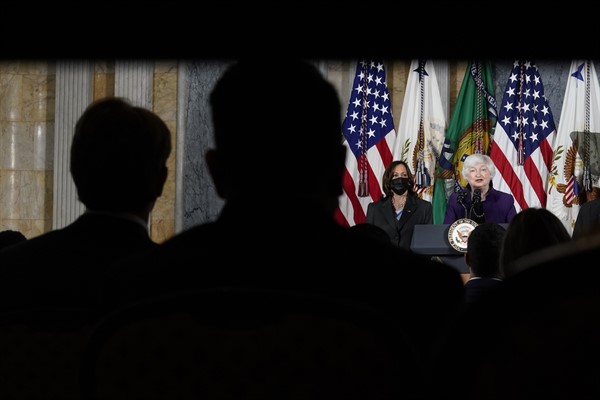On Oct. 3, the International Consortium of Investigative Journalists released 11.9 million confidential files, known as the Pandora Papers, that documented how world leaders, oligarchs and business elites park their wealth in offshore jurisdictions. Like the Panama Papers of 2016, this new leak brought shell companies and offshore jurisdictions under intense public scrutiny for their role in helping the rich and powerful evade taxes and ignore the transparency requirements by which their fellow citizens and competitors must abide.
What was perhaps most damning was the inclusion of five U.S. states—South Dakota, Florida, Delaware, Texas and Nevada—among the list of favored offshore jurisdictions. In these places, vast fortunes are sheltered in the United States under a blanket of secrecy, even as U.S. politicians regularly chastise Switzerland, the Cayman Islands and others for their lack of transparency.
Months before the Pandora Papers’ release, the United States, led by President Joe Biden, took steps toward recognizing its role in international corruption. In June, Biden officially established combating corruption as a “core national security interest,” directing the National Security Council to conduct an interagency review and promulgate an all-of-government anti-corruption strategy. The directive included a historic recognition of the United States’ transparency gaps and responsibility to address them. But it, too, still presents offshoring as mainly a foreign problem. To the contrary, it is also an urgent domestic matter.

